Camping this Fall? Consider Camping on Your Boat
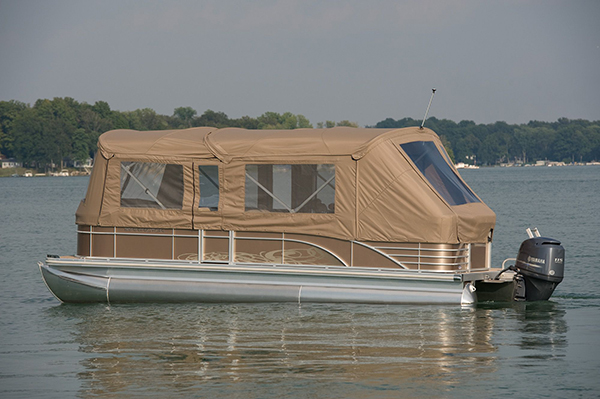
Fall is in the air and with cooler weather on the horizon, many plan to take in the beautiful scenery while camping. A great alternative to the traditional campground is camping on your boat. It’s safe, inexpensive, fun and promises build memories that will last a lifetime.
Go Boat Camping
Boat camping is a broad term that can mean anything from pitching a tent on a shoreline to sleeping aboard your boat. The beauty of boat camping is the freedom to go where cars can’t, which adds to the adventure and bypasses the crowds.
No, you don’t have to dress up like the Flintstones; primitive camping refers to pitching a tent at a remote location that has limited or no facilities. The best and most remote are campsite areas that are accessible by boat only. Start by researching areas that legally allow it. Typically, backcountry camping areas are either free or have a small fee imposed.
Most large bodies of water are controlled by either the state, U.S. Army Corp of Engineers® or National Park Service® (NPS) and have websites that explain the rules and fees. The terminology varies. For example, the Land Between the Lakes recreational area in Western Kentucky and Tennessee is controlled by the NPS and designates its primitive camping sites as either basic or dispersed.
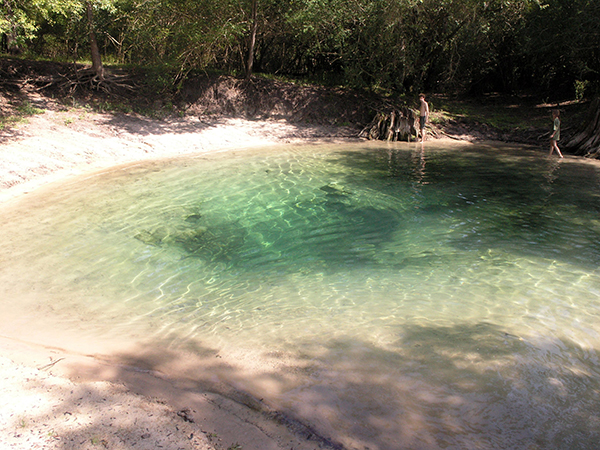
Basic sites have minimal facilities such as pit sanitary facilities, fire rings and picnic tables. Dispersed sites are places not near other facilities so if you find a remote beach, you’re allowed to pitch a tent and stay up to two weeks in one spot.
The cost is $10 per adult (18+) for three days or $50 per adult for an annual pass. Many navigable rivers have primitive camping opportunities like on the St. Croix River in Wisconsin and Minnesota.
Just make sure to do some research to find the location of permissible campsites, read up on the rules and to make sure the water level is adequate. Remember to leave an area cleaner than when you found it and completely extinguish all campfires.
Stay on Board
The beauty of sleeping on your boat is you are free from having to find a land campsite so almost anywhere there’s water, you can throw out the hook and sleep (check all applicable laws and regulations, though). Cruisers are designed for weekending and most give you the basic needs: a galley, head, and bed. The best anchorages are far from traffic, such as small coves.
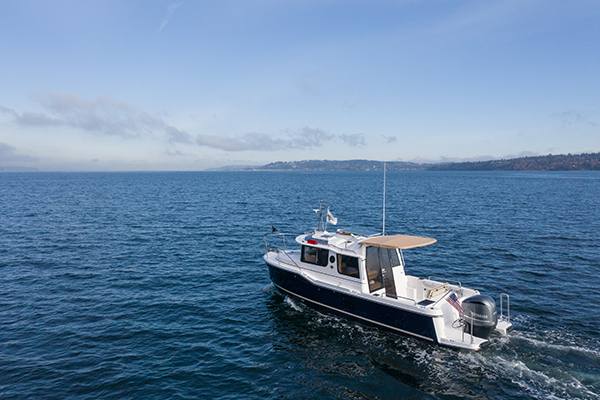
Before you retire in the evening, make sure your anchor light is turned on, your anchor is well-set and that you have enough room to swing if the wind or tide changes. And if you are in a tidal area, check the depth in all directions around your anchorage to avoid grounding at low tide.
You can still stay on board your boat even if it doesn’t have a cabin. Pontoons, deck boats and larger bowriders are all great candidates for sleeping aboard. You could sleep al fresco if the weather’s nice but having a full canvas enclosure turns virtually any boat into a floating motor home.
To create an adult-friendly bed, an inflatable mattress wedged between the bow lounges offers lots of comfort and can be stowed underseat during the day along with bedding and pillows. Kids can sleep on the boat’s lounge seats or on the stern lounge if your boat is so equipped.
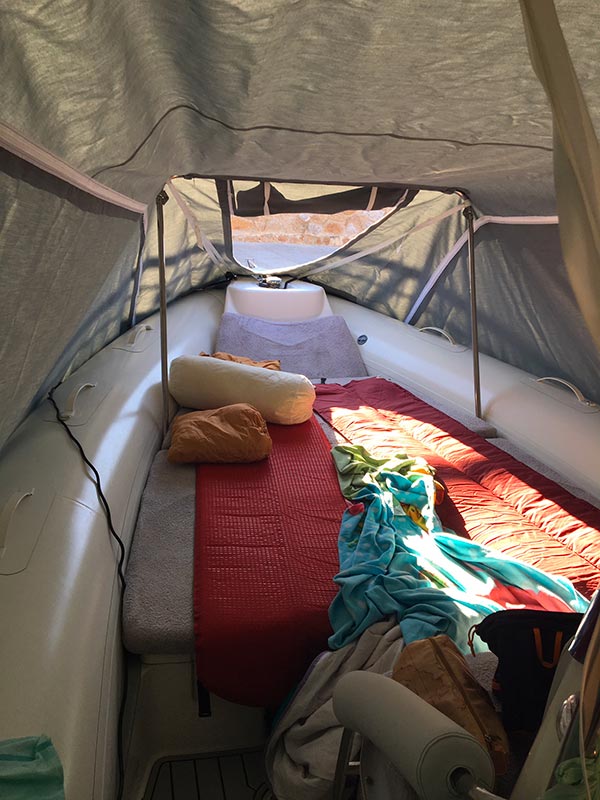
What You Need to Bring
A good investment is a flushable, portable toilet, which can be placed in larger consoles or in changing rooms that use curtains for privacy. For heating meals and morning beverages, take along a portable propane grill/stove, which can be mounted using rod holders, track systems or on pontoon rails.
Make it a game to catch dinner by fishing during the day but as a backup, precook and freeze hearty meals like stews or pasta dishes in plastic freezer bags, which can do double duty by keeping your cooler cold before you eat them.
Bring along at least two coolers: one that you use only when getting the day’s food out and the other for beverages. If your daily activities include swimming, you can stay clean with rinse-free body wash or moist towelettes sponge baths. If your boat doesn’t have a freshwater shower, you can buy a portable camping shower. Most parks will allow you to use their showers for a small fee if you want a real shower.
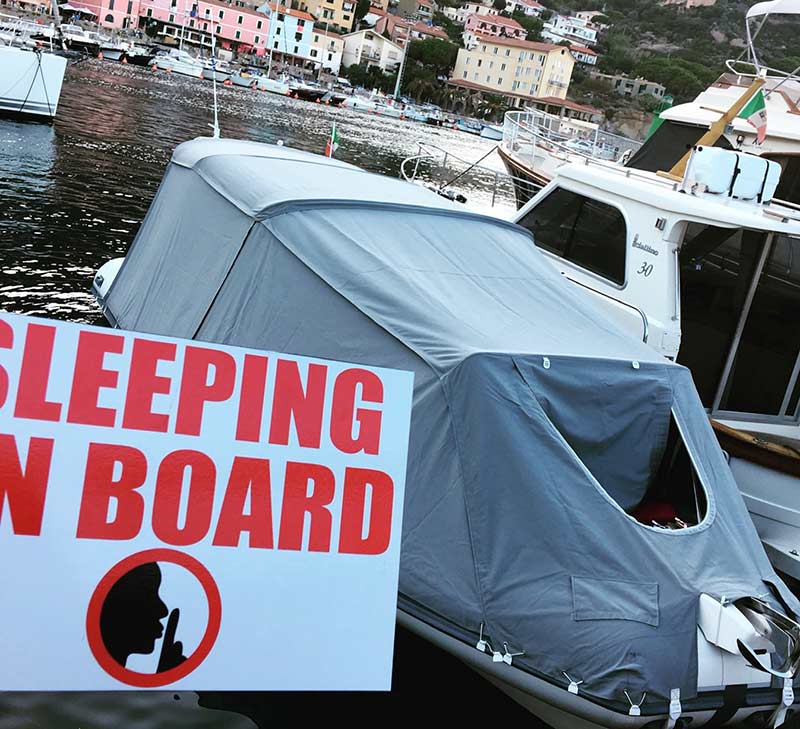
Bugs!
Nothing can wreck a camping trip faster than biting bugs, but you can win the battle with a multi-pronged attack. The best investment you can make is to bring along a couple of Thermacell® repellants, which are devices that use a butane flame to slowly cook a blue, chrysanthemum-based wafer. Many people swear by DEET-based bug sprays and lotions, but there are other options.
Proven® is a lotion you rub on your skin that uses an ingredient called Picaridin that’s highly effective for many kinds of biting bugs (even ticks). Repel® insect repellant is made for campers older than three and uses the oil of lemon eucalyptus to effectively keep bugs away.
Chances are good there’s a great boat camping opportunity near where you live. Get the whole family involved in the planning and researching It will give everyone something to look forward to, and a fall camping experience for the books!